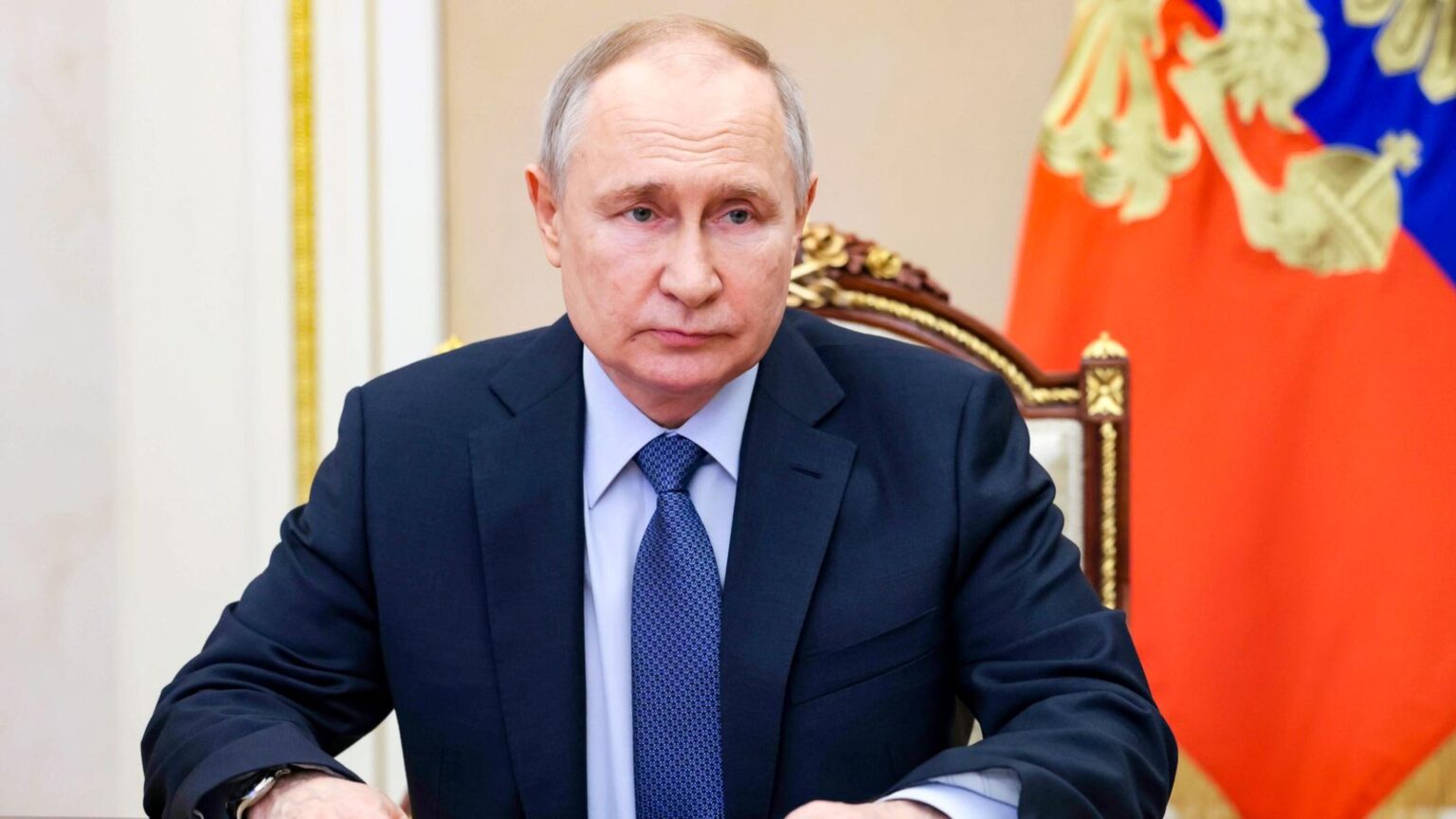Russian President, Vladimir Putin has laid out conditions to end the war in Ukraine.
Speaking at the Russian Foreign Ministry on Friday morning, June 14, Putin announced that he will call a ceasefire and immediately enter peace talks if Ukraine is willing to pull back its troops from four regions occupied by Russian forces and give up plans to make a NATO membership bid.
‘We will (call a ceasefire) immediately,’ Putin said in a speech at the Russian Foreign Ministry on Friday, adding his proposal is aimed at a ‘final resolution’ of the conflict and that the Kremlin is ‘ready to start negotiations without delay’.
The declaration comes on the eve of a two-day conference in Switzerland dedicated to building a ‘road map’ to peace in Ukraine.
President Volodymyr Zelensky has refused to consider a deal that would see Ukrainian land surrendered to Moscow.
Putin’s troops currently control a significant amount of Donetsk and Luhansk, and in September 2022 Moscow unilaterally declared it had annexed those two regions well as parts of Kherson and Zaporizhzhia.
The Russian forces are also making gains across the border in the northeastern Kharkiv region.
Meanwhile, the Russian President in the same speech this morning, claimed that Western leaders are pushing him towards ‘the point of no return’ over a nuclear World War Three.
‘We have come unacceptably close to the point of no return… Calls to inflict a strategic defeat on Russia, which possesses the largest arsenal of nuclear weapons demonstrate the extreme recklessness of Western politicians,’ Putin declared.
‘They either do not understand the scale of the threat they are creating – or are simply obsessed with their own sense of impunity and exceptionalism
‘Both can lead to tragedy,’ he concluded sternly.
Putin’s remarks today came as leaders of the G7 leaders met in Italy and as Switzerland prepared to host scores of world leaders for its peace conference in Lucerne.
The Kremlin chief said he did not want to ‘freeze’ the conflict and instead was pushing for a final resolution that would see an end to hostilities.
Broader demands for peace that the Russian leader listed included Ukraine’s non-nuclear status, restrictions on its military force, and protecting the interests of the Russian-speaking population in the country.
‘We’re urging to turn this tragic page of history and to begin restoring, step-by-step, restore the unity between Russia and Ukraine and in Europe in general,’ he said in remarks in which he clearly laid out his conditions for the end of war.


